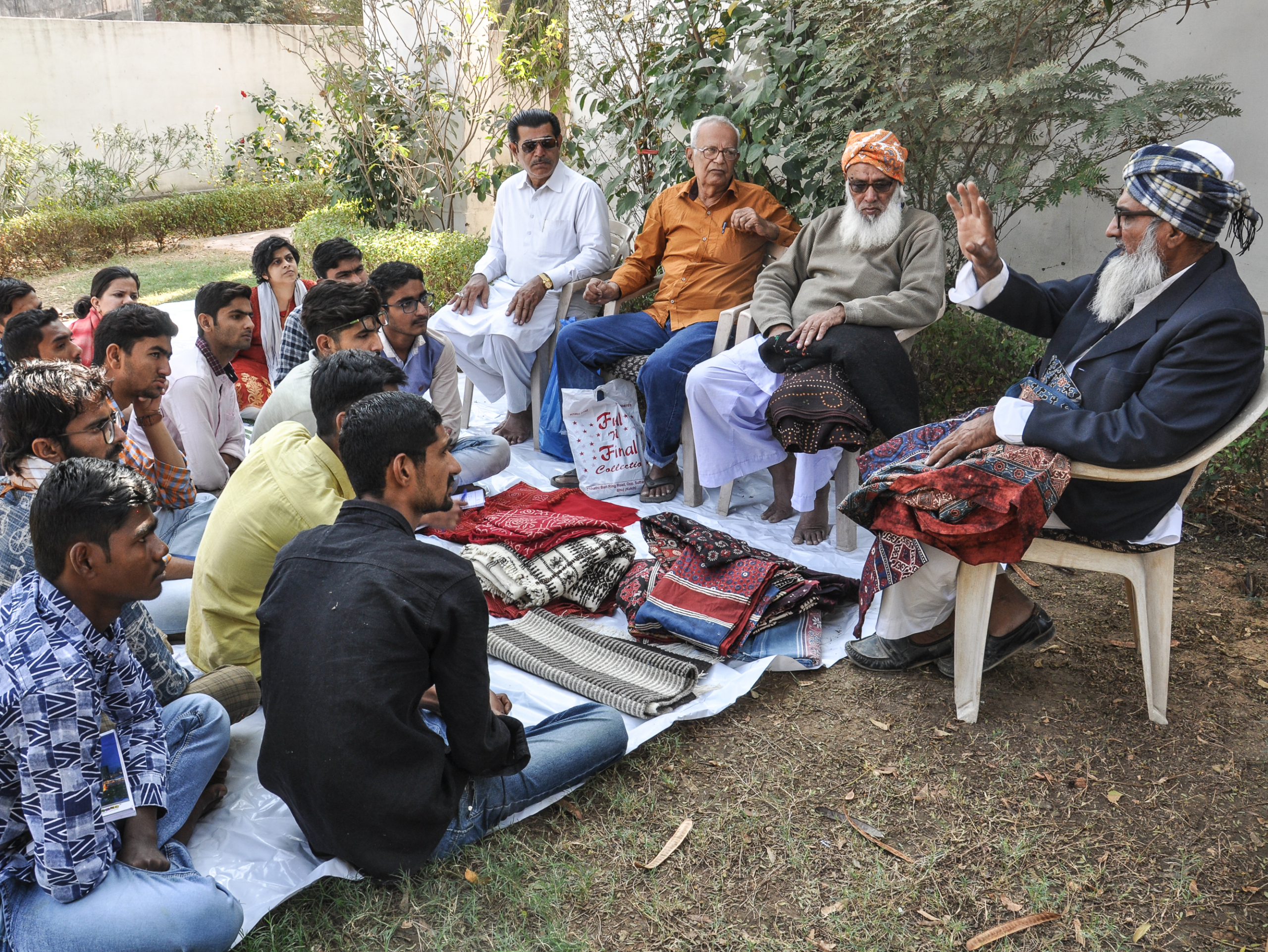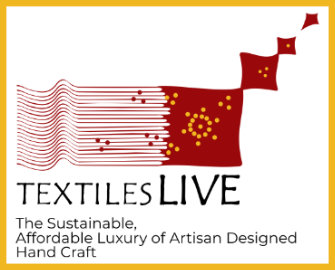Government (and other) Intervention in Craft
 August 5, 2023
August 5, 2023
Dr. Ismailbhai Khatri and other Advisors teach artisan students about traditional textiles at Somaiya Kala Vidya in 2018
In “Crafting the Nation in Colonial India” McGowan describes how craft was swept into the industrialization of post-independence India as a complementary means of production. Most early 20th C. reformers, she writes, agreed that crafts were a distinct sector of the economy characterized by traditional styles, technologies, labor, and organization… which provided outsiders the excuse to intervene. They felt that artisans were too tradition-bound to handle requisite changes on their own.
The perception that artisans need help in order to survive continues to drive the range of government policies and schemes for the craft sector. “Helping” is a vertical dynamic: the powerful help the less powerful, and the notion of helping serves to reinforce existing power differentials.
Further, welfare is a quick fix that can only the maintain status quo. Government schemes are often focused on skill upgradation, assuming that skill is the artisan’s capacity. Real change is slow; it comes through analysis of shortcomings and education. Artisans have skills. What they lack is the ability to directly reach markets that value craft.
Middlemen- who must include designers, NGOs and even the government as well as traders- are often blamed for artisan adversity. Intermediaries fill a need, providing a gamut of methods to access markets. With education about market segments, appropriate design innovation, pricing and promotion, effective communication with clients, and businesses management in today’s world, artisans can begin to access appropriate markets themselves.
Dr. Ismailbhai Khatri, Ajrakh master artisan and community leader, said it all when in 2003 he was asked what the government can do for artisans. “Provide good roads, clean water, reliable phone and mail service, and relevant education within a reasonable proximity to villages,” he said. “In addition to that, socialized medicine and effluent treatment would benefit us a lot. If the government just provides these basic facilities, we can take care of craft. If we can devote our energies fully to our work, there is no need for subsidy!”



